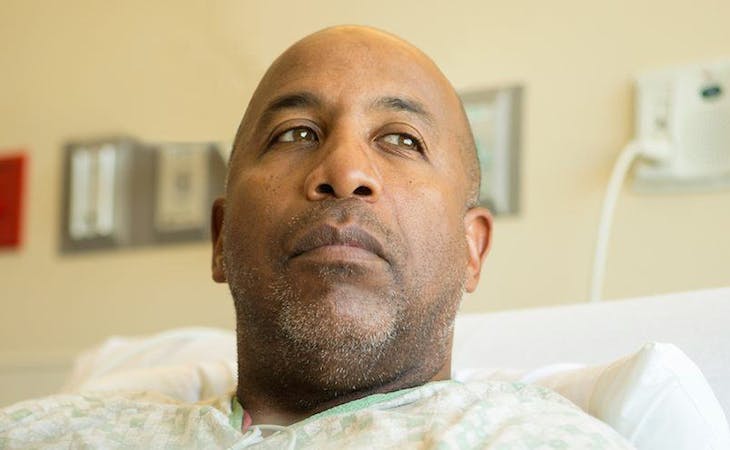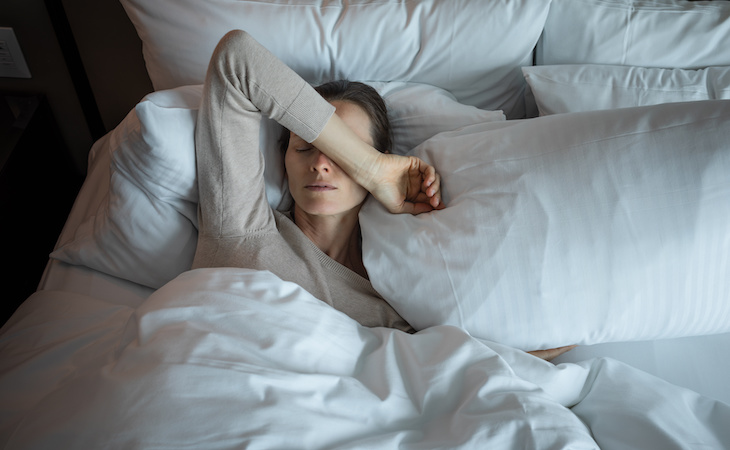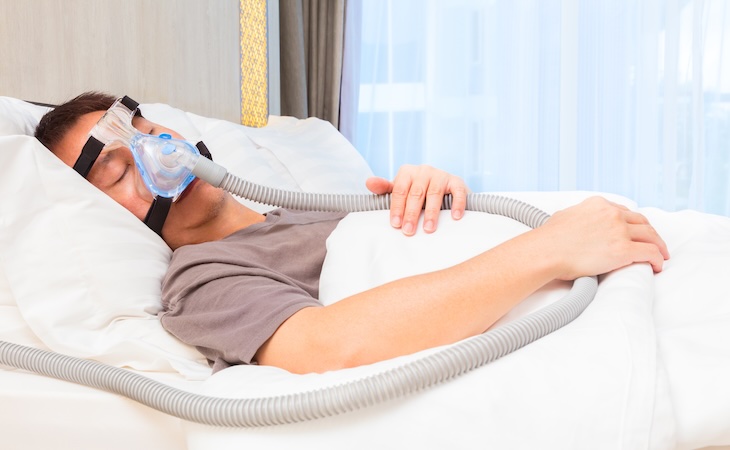A cancer diagnosis can be stressful, overwhelming, and scary. But what you might not realize is that on top of the physical and emotional pain you might feel, cancer and its treatment can also hinder one of your body’s best forms of recovery: sleep.
How cancer and cancer treatment impact sleep
Sixty percent of advanced cancer patients suffer from sleep disturbances, according to research published in the Journal of Pain and Symptom Management. Common symptoms such as pain, nausea, and night sweats are all uniquely sleep-disrupting.
Treatments impact shuteye, too. Steroids such as prednisone may provide an unwanted boost in energy; estrogen blockers used in breast cancer treatment can worsen sleep quality; and chemotherapy may lower mood or contribute to manic episodes, explains David Puder, MD, psychiatrist at Loma Linda University Behavioral Medicine Center and director of the MEND program for people facing significant illness.
Some cancer patients experience nightmares and vivid dreams. The mere emotional toll of a cancer diagnosis might keep you up at night as well, triggering a flood of difficult existential questions such as, “How could this happen to me?” Puder says.
Then there’s this double whammy: Cancer and its many treatments can also induce extreme fatigue. It’s a vicious cycle of feeling tired but not being able to sleep.
Fortunately, there are ways to rest. Just remember, if you’ve tried lifestyle changes but still can’t get enough sleep, make an appointment with your doctor, advises Puder. Cancer patients may be at an increased risk of sleep disorders such as chronic insomnia, sleep apnea, restless legs syndrome, and circadian rhythm disorders—all of which require additional treatment, he says.
It’s also worth noting that both too little and too much sleep have been associated with a higher risk of death in patients with advanced cancer. So if you’re concerned about your sleep, it’s important to consult a medical professional.
Sleep tips for cancer patients
Here are five things you can do to get better sleep if you are undergoing cancer treatment.
Prepare a soothing sleep environment
It’s ideal to make your sleep environment a calming constant. If you’re at home, keep it quiet, dim, and at a comfortable temperature too (cool off with a fan if you’re battling night sweats or hot flashes, per The National Institutes of Health).
If you’re sleeping in a busy hospital, there are some small things you can do to make your sleep environment a little calmer, even though you don’t have much control over the environment there. So, whether it’s the soothing buzz of a white noise machine or a certain scent, try to make your space feel soothing and safe, suggests Puder.
Relax before bed
Cancer treatment can be daunting, not to mention a disruption to your usual day-to-day activities. Consider writing down your anxieties in a journal before bed. Sometimes putting your most pressing thoughts on paper allows your mind to release them instead of dwelling on them all night long, Puder explains.
Other wind-down activities such as reading a book or listening to music can also help you relax before bed.
Make time for exercise
Research shows exercise can help keep your circadian rhythm on track, supporting a good night’s sleep even in the midst of cancer treatment. And while exercise might be the last thing you feel like doing when you’re feeling low on energy or just not like yourself, it can help boost both energy and strength and help you power through daytime fatigue. With your doctor’s approval, try to start your day with movement. A morning walk or weightlifting are two good options, says Puder.
Boost your energy stores with a healthy diet
Cancer can zap your appetite and make it difficult to take in enough calories. And while you know that eating high-quality protein, fat, and fiber with every meal and snack can help keep blood sugar levels in check and support healthy sleep, that’s easier said than done.
A good starting point: Blander foods at room temperature as well as those that don’t have strong smells and aren’t too hot (two factors that can increase nausea), suggests Dana Hunnes, RD, PhD, senior dietitian at Ronald Reagan-UCLA Medical Center in Los Angeles, who sees cancer patients. Otherwise, healthful plant-based shakes can provide calories without the body having to do a lot of work. “I always recommend those because sometimes shakes are easier to take down than foods you have to chew. Getting calories is the most important thing,” says Hunnes.
See a therapist
If you’re truly unable to rest, talking to a professional can help you get your thoughts out, potentially alleviating worry and stress. “Therapy can be very helpful for someone who is going through cancer and struggling with depression and anxiety,” says Puder. Ask trusted loved ones or your doctor to refer you to someone you can talk to, he suggests.
While certain modalities can help with specific symptoms (think: cognitive behavioral therapy for anxiety and insomnia), most importantly, you want to find a therapist who is understanding, empathetic, and a good listener, Puder says.
Mindfulness can calm your mind and make it easier to fall asleep. Here, learn about how to meditate for better sleep.




